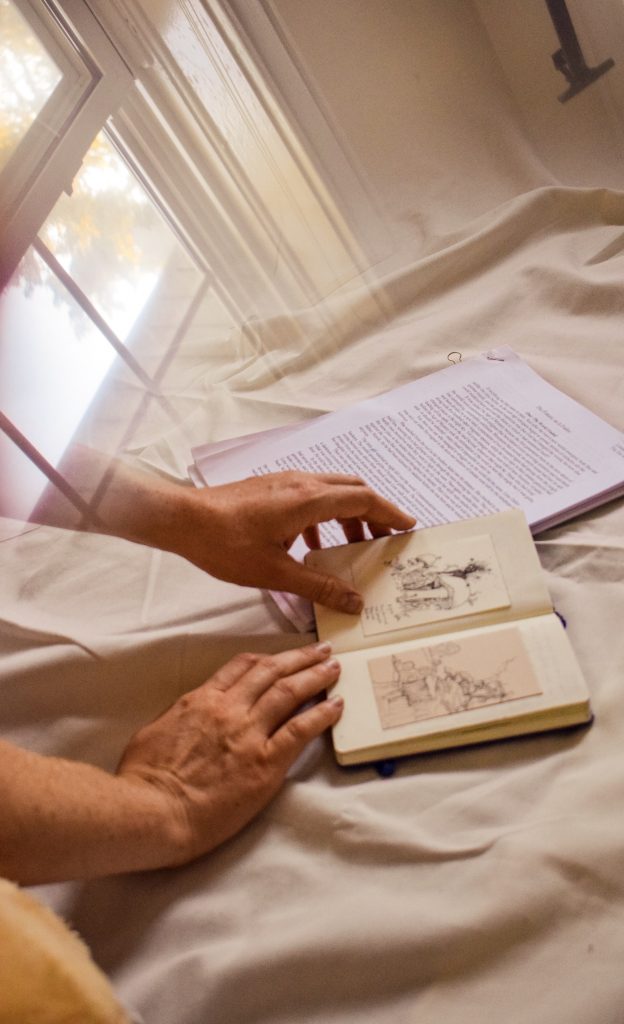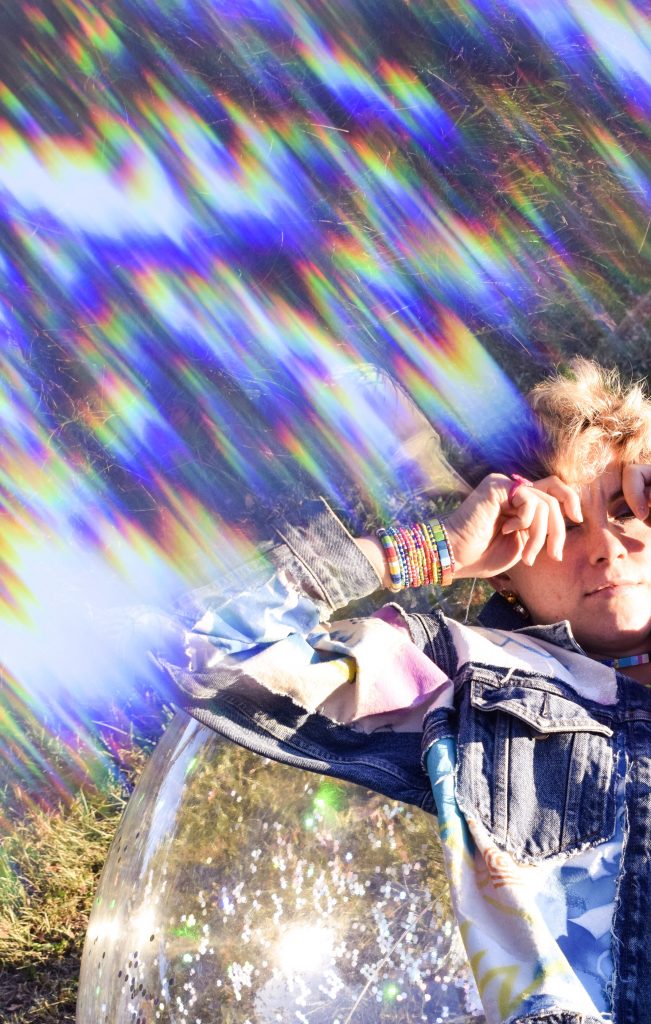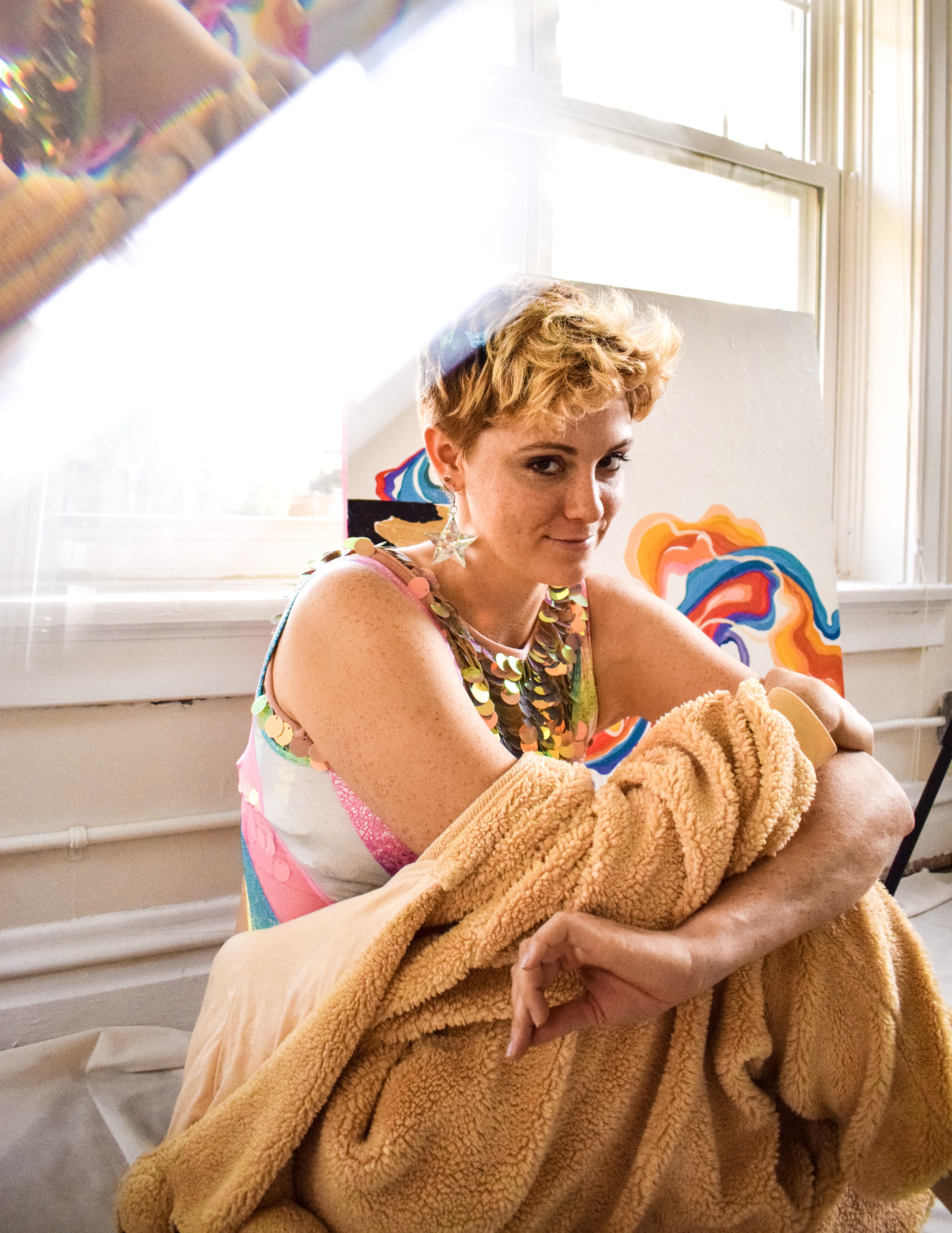I had never met Lindsay Virgilio before our interview. Everything everyone told me about her beforehand painted this image of someone with untouchable coolness, so I was really nervous to talk with her. But, when we met up at Whispers, she greeted me with a warm smile and a flash of purple glitter eyeliner. Lindsay is undoubtedly one of the coolest people I’ve had the privilege of talking to, but not in the unapproachable way that I was initially afraid of. On the contrary, Lindsay was extremely genuine and willing to be completely and totally vulnerable during our conversation.
Lindsay shared with me one of her main philosophies: She doesn’t believe the purpose of one’s life is to live for themselves. “When you live about you… it distracts from a larger picture that there are 7 billion people in this world and if we all really cared about each other we could do a lot better by each other. By doing better by each other, we would do better by ourselves.”
This fundamental philosophy is the essential driving force behind many of the passions Lindsay shared with me. Whether it be writing, teaching, playing soccer, or DJ-ing, for Lindsay, it all comes down to wanting to make those around her happy and comfortable.
For most of her childhood, Lindsay didn’t see herself as anything but a soccer player. Then, two torn ACLs prohibited her dreams of being recruited to play at the university level. Not being able to play, Lindsay told me, “used to make me really upset [because] playing soccer made me strong. Not just a strong woman, but a strong person. It made me believe that I can give more, not just for me, but for everyone around me.” To fill some of the space that soccer used to take up in her identity, Lindsay began to explore art and writing.

When she first came to WashU, Lindsay was a student at Sam Fox School of Design, but quickly realized she “didn’t like to do art for anyone else except [herself]” and decided she would rather pursue writing. Her dream after graduating is to eventually become an English professor so that she can help more people learn how to write, and how to love to write. Lindsay has a natural disposition for storytelling because of how her dyslexia causes words to slip, but narratives to stick. Lindsay’s first self-published book is based on a dream she had in eighth grade, and she worked on it all throughout high school before publishing it online her sophomore year of college. It began as an epic poem, but eventually turned into a dystopian fantasy novel called East of The County. By the end of this year, Lindsay hopes to self-publish her second book, titled The Future, As It Fades. That book is “based on another dream I had where I was at the edge of a giant cliff, and below the cliff there were these sands that stretched forever and these winds that rushed up over them. It was sundown and there was someone going off the cliff and traveling across the sands, but there’s nothing there…” For Lindsay, there has been no other dream than the dream of telling stories and sharing them with the world.
When it comes to fashion, Lindsay is known on campus for her unique and expressive sense of style. Whether it be a rainbow sequined top or a hand-painted denim jacket, Lindsay wears anything that makes her feel the most like her. Lindsay also made a lot of her own clothes growing up, and before she could sew, her mother sewed for her. “I was always very particular about my clothes. I wanted to be a Jedi for Halloween once, and my older brother picked out this brown cloth, because that was like what an actual Jedi would wear, but as my mom took me down the [fabric] aisle, she took out this rainbow, stretchy fabric, and I said that’s the one I want. I guess the rainbow has always been in my soul.”

Lindsay’s always had a complicated relationship with clothes because of what she now believes to have been gender dysmorphia. For a very long time, she told me, “I would look in the mirror and see a boy.” When I asked her whether or not she felt fashion has been more expressive or restrictive, she said “I think if you had asked me that question three years ago, I probably would have said restrictive because no matter how hard I tried, I couldn’t really look like a guy, because I had hips. [But] now I think fashion is definitely expressive [for me]. I now will specifically put something on just because I know someone else won’t be wearing it.”
“As my mom took me down the [fabric] aisle, she took out this rainbow, stretchy fabric, and I said that’s the one I want. I guess the rainbow has always been in my soul.”
Lindsay’s distinctive style is accentuated by her red, pixie-cut hair. If there’s one thing she could tell people about herself, it would be that she never cut her hair short as a statement; short hair is just what felt right. “I remember being really sad the fall of my sophomore year of high school, and I took kitchen scissors and I finally just cut my hair to the scalp. For me that felt really good. It was the worst haircut I’ve ever had. But it felt really good. Throughout high school, I mostly cut my own hair. Cutting [it] was extremely liberating. There was something about touching the buzzcut and feeling the bristles at the end… it just had this feeling of weightlessness.” Running her hands through the top of her hair, Lindsay laughed as she shared that she had actually cut it herself again just last night.
As our conversation continued, I eventually noticed how the sky around us had changed from light blue to pink and navy as the sunset began to fade. When I checked the voice memo on my phone to see how much time had passed, I was surprised to see that we had talked for over an hour.
In the course of days following our interview, I coincidentally ran into Lindsay multiple times, and she was just as welcoming and friendly as she was the day that we talked.
I think we could all learn something from Lindsay’s take on life: Lindsay is true to herself by being a writer, by cutting her hair the way she wants, and by wearing whatever clothing makes her happy. Simply doing the things that make us happy doesn’t seem like all that complicated of a concept, but in reality, I think too many of us are caught up in trying to fulfill imaginary standards or expectations of what we should or shouldn’t be doing. Trying to meet these expectations drives our energy inwards. Instead, I think if we all took Lindsay’s advice and chose to focus our energy outwards, to do better by each other, we would naturally do better by ourselves.
Words by Alaina Baumohl
Edited by Hannah Dains
Photographed by Patty Alvarez
Styled by Ellie Epperson and Izzy Jefferis
Directed by Virginia Pittman
Published in Armour Magazine Issue 23: Armour & Co


